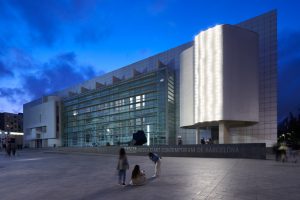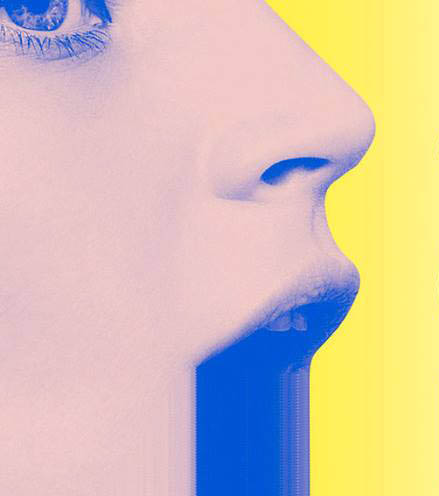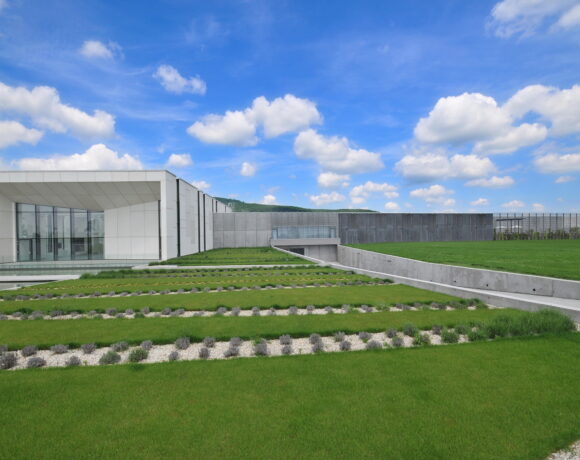MACBA is integrating its exhibition spaces, joining the body of the Meier building with the overlooking square and the Convent dels Àngels. By the end of 2023 the works are expected to be completed with the “conquest” of an additional 3 thousand square meters of floor space: ultimately a challenge to keep up with the times and to be able to expand the cultural offer. The total cost of this intervention is € 5,445,613.86.
The museum has a collection counting about 6 thousand works (mainly works related to the visual culture of the place) and among those recently acquired the names of the artists are reported: Mar Arza, Consuelo Bautista, Antoni Clavé, Ivana Franke, Cristina Garrido, Soledad Sevilla Antoni Tàpies, Juan Diego Varela.
The current exhibitions are three: “Felix Gonzalez-Torres: The Politics of Relation”, “SAMPLER # 4: Things that Happen”, “In Real Time: Rafael Tous Collection of Conceptual Art”, and in particular we focus on the first, dedicated to a re-examination of the work of Gonzalez-Torres (Guáimaro, Cuba, 1957 – Miami, USA, 1996), curated by Tanya Barson, with the aim of underlining the fruitful relationship between Spain and the Caribbean, on themes such as memory, authority , freedom and national identity. And this is because all of Gonzalez-Torres’ work must be seen as the work of a “committed” artist, that is, who has always raised social issues, for example by working against homophobic attitudes or signaling the rise of conservatism in politics or an insane militaristic machismo. The exhibition, which brings together about forty works, starts from the facade of the museum and then develops over four rooms.
The façade houses a portion of “Untitled (America)” from 1994, a sort of anti-monument, composed of twelve threads of light (the other eight threads are located on the Ramblas de Raval) which, in connoting the word “America”, question the nationalism and patriotism that the word implies or more simply a problem of integration and identification that is not always easy for all the immigrants who make up the galaxy of the United States of America.
At the entrance, the exhibition begins with “Untitled (Portrait of Andrea Rosen)” from 1992: it is a wall painting, obviously with an arrangement interpreted by the curator.
From here we move on to Room 1, where the works deal with the theme of the most common homophobic attitudes and I would say that from the author’s point of view there is not only a reference, certainly possible, to the heavy climate that has been felt in the USA (especially after the AIDS epidemic during the Eighties and Nineties), but the gaze widens to the world, as if to say: it becomes a timeless proclamation and without an exact geography to refer to.
The works in Room 2 present ideas of coupling, contact, splitting, identity and balance, thus underlining the importance that the author attributes to the idea of queerness and equality. The works on display also highlight the debt to the vocabulary of minimalism and conceptual art as vehicles for offering emotional content, one of his most important contributions to a renewed artistic language. This, however, is also one of his more political gestures, as the author acknowledged that the cryptic approach allowed him to talk about homosexuality, in particular to address the issues of homosexual desire, love and vulnerability, evading criticism from far-right conservatives and their efforts to censor such intent. At the same time, the open and participatory trait of his language makes the work accessible to all viewers, enclosing the specificity of individual identity and at the same time offering an image of equivalence, community and the common good.
Room 3 deals with the themes of travel, emigration, exile, tourism and escape in search of an alleged freedom. The proposed images highlight the water, the sky, the beaches, as if to suggest broad poetic metaphors that can respond to the double meaning: what you can get with the god of money and what you can’t get to without having it; as if to say: utopia is often an unreachable land and the proclamations of human rights often remain a dead letter. Here the works are linked through the tonal range of white, blue and gray.
Bruno Sain
Info:
Felix Gonzalez-Torres: The Politics of Relation
26/03/2021 – 12/09/2021
MACBA
Plaça dels Àngels, 1
08001 Barcellona
exposicions@macba.cat
 Felix Gonzalez-Torres, vista esterna del MACBA con parte dell’opera Untitled (America) del 1994, foto Miquel Coll, courtesy MACBA
Felix Gonzalez-Torres, vista esterna del MACBA con parte dell’opera Untitled (America) del 1994, foto Miquel Coll, courtesy MACBA
 Vista parziale della mostra Felix Gonzalez-Torres: The Politics of Relation, ph Miquel Coll, courtesy MACBA
Vista parziale della mostra Felix Gonzalez-Torres: The Politics of Relation, ph Miquel Coll, courtesy MACBA
 Vista parziale della mostra Felix Gonzalez-Torres: The Politics of Relation, ph Miquel Coll, courtesy MACBA
Vista parziale della mostra Felix Gonzalez-Torres: The Politics of Relation, ph Miquel Coll, courtesy MACBA

is a contemporary art magazine since 1980






NO COMMENT